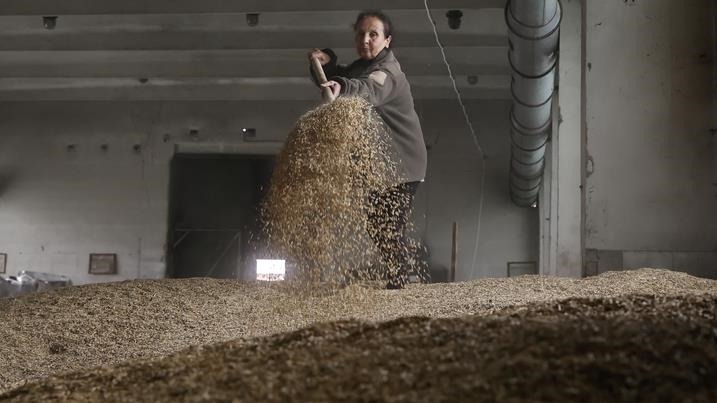‘We are facing up to a collision of crises, which will amplify food insecurity, debt distress around the world,’ says Ursula von der Leyen
The European Union cannot tolerate Russia’s use of food as a weapon, the EU Commission chief said on Wednesday.
Speaking at the European Parliament’s plenary session in Strasbourg, Ursula von der Leyen warned: “We are facing up to a collision of crises, which will amplify food insecurity and debt distress around the world.”
She explained that the origins of these crises are partially structural and also related to the COVID-19 pandemic, but stressed that the impacts are “massively and deliberately compounded by Putin’s actions.”
“Food has become part of the Kremlin’s arsenal of terror, and we cannot tolerate this,” von der Leyen pointed out.
She called Russia’s bombing of grain storage facilities and blockade of the Ukrainian ports a “cold, callous and calculated siege by Putin of some of the most vulnerable countries and people in the world.”
She also highlighted that global food insecurity is because “Russia actively weaponizes hunger” by blocking the shipment of over 20 million tons of grains in Ukraine and not due to the EU sanctions that “do not touch food commodities.”
Von der Leyen asserted the importance of helping Ukraine to export its agricultural products and reassured that the EU and its international partners will not restrict their own food exports.
She also noted that the bloc is set to support its southern neighborhood with €225 million ($240 million) to address short-term supply needs.
The European Commission also proposed to mobilize another €600 million from the European Development Fund to boost Africa’s resilience and food production capacity, she said, calling on EU lawmakers to approve the motion.
The EU has allocated €2 billion in military aid to Ukraine and mobilized more than €4 billion in macro-financial assistance, humanitarian aid, and support to EU countries hosting refugees from Ukraine since the war began on Feb. 24.
It has also imposed six sets of sanctions targeting, among others, Russian President Vladimir Putin, and Foreign Minister Sergey Lavrov, as well as banning oil and coal imports, the export of luxury goods, and excluding Russian and Belarusian banks from using the SWIFT system.
The bloc is also expected to allocate another €9 billion credit to Ukraine.
-AA

